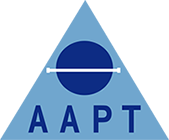News
Mortuary Managers Study Day IV - a report
Mortuary Manager Study Day IV - a report from Council member Michelle Lancaster FAAPT
The 4th mortuary manager study day was held on the 11th November 2016. It was pleasing to see so many mortuary managers / senior APTs attend the day once again and we would like to thank everyone in attendance for their input and contribution towards the day.
Several topics were discussed and some actions from the first topic of the morning – brain & spinal cord donation were noted to take forward to the AAPT Council meeting on the 9th December 2016.
Brain & Spinal Cord Donation
The group discussed the recent AAPT survey results regarding issues surrounding the donation of brain and spinal cord to charitable organisations and to brain banks for research.
Further discussion / action points:
- To share the results of the survey and the details of those who had agreed to become part of the HTA register of mortuaries able to complete donations to the HTA
- Should brain banks / research facilities have SLA / third party agreement in place with local establishments rather than the “ad hoc” requests which can be rejected as no formal agreement that mortuaries should carry out donations for this purpose?
- Currently no standard amongst retrieval facilities in payment – this could be covered under an SLA if payment required
- To ensure that there is a process in place so that high risk donations are identified and information provided to the retrieving facility in advance of the donation.
- Mortuary facilities that can perform high risk donations are identified amongst the register so suitable facility can be contacted more timely.
- To enquire whether the possibility of feedback regarding donations would be possible from brain banks / research facilities – this could lead to increase in donations as would provide evidence for APTs of competency in the procedure / CPD evidence and quality assurance.
- To set up training schemes for this procedure:
- Mutual aid training – set up links between local mortuaries so if one facility has a donation, staff from another facility could possibly attend to observe the procedure
- Approach surgical training centres for possible training days across the country
- Training video and procedure document
RSPH Level 4 Diploma – an overview
Another topic discussed during the morning session was the introduction of the Level 4 Diploma in October at Chester University – a quick run through of the syllabus was completed and everyone agreed the content of the course is relevant and exciting for the progression of APTs.
The current costs associated with Level 4 were also discussed as was access to the new qualifications for those holding the previous certificate / diploma in APT. A top up course for those holding the certificate and diploma is currently under development with agreement from the RSPH and an announcement will hopefully be forthcoming early 2017.
Gap Analysis & Action Planning
The afternoon session saw attendees participate in a practical workshop looking at how gap analysis and action plans are produced which can really help mortuary managers / senior APTs look at gaps in current practice / procedures when ever new documentation or legislation is produced.
Creating action plans then allows a more structured approach to ensuring legislation is complied with and can also act as an audit which demonstrates to HTA , UKAS, the CQC etc that continual quality development of a department is undertaken.
Keeping it relevant to APTs and to this time of year the workshop used the HTA document produced in 2015 – “Storage capacity and contingency arrangements in mortuaries:
Guidance for Designated Individuals in HTA-licensed establishments” to complete a gap analysis with some actions then uploaded to an action plan template that those present could then go away and further develop. It was an extremely productive couple of hours!
APT Professional Registration
The last session allowed APTs to talk openly about issues with regard to professional registration – particularly in light of difficulties with registering with the Academy for Healthcare Science.
The AAPT had posted website articles to encourage debate and would be also submitting a Member Body application to the Science Council. It was likely this was a first step to the AAPT entering a cluster arrangement with a larger Licensed Body in order to offer Chartered Scientist, Registered Scientist and Registered Science Technician professional registration to members.
